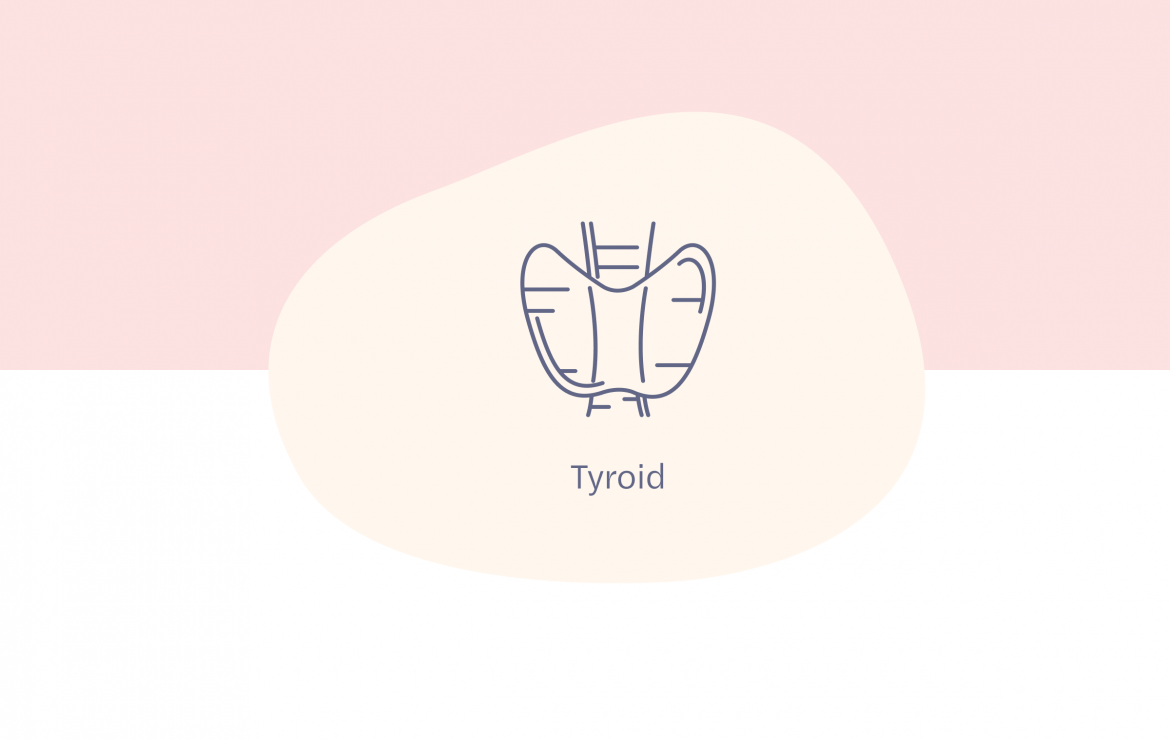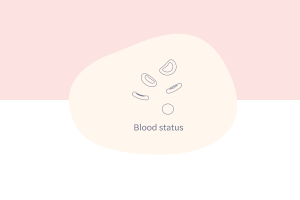Thyroid Hormones

Thyroid profile
What are thyroid hormones?
The thyroid affects practically all cells in the body, and has a key role in metabolism, growth, body temperature, sleep and fertility. When the thyroid is not functioning correctly, symptoms can be vague and a blood test can be an easy way of identifying a problem. For instance symptoms of weight gain, fatigue, low mood and feeling cold, can be due to an underactive thyroid – the commonest thyroid disorder, especially in women.
Located at the front of the neck, the butterfly-shaped thyroid gland produces hormones thyroxine (T4) and triiodothyronine (T3). Normally, the thyroid gland produces 80% T4 and 20% T3. The secretion of T4 and T3 is regulated by thyroid stimulating hormone (TSH), which is produced by the pituitary gland in our brain. These hormones are connected through what is called a feedback loop: high levels of T3 and T4 will reduce the amount of TSH present in the blood, and conversely if there are high levels of TSH, the secretion of T3 and T4 will be lower.
A thyroid profile may include:
-
Free Thyroxine (FT4): T4 is the most abundant thyroid hormone in the blood. However, only about 1% of T4 in the blood is freely available for use by cells, the rest is bound to a protein. A FT4 test measures the amount of T4 that is biologically active in the blood – can exert an effect on bodily functions.
-
Free Triiodothyronine (FT3): T3 is thought to be responsible for most, if not all of the effects of thyroid hormones. About 20% of T3 in the blood is secreted by the thyroid gland, with the remainder being produced by the conversion of T4 in cells around the body. Like T4, most of the T3 molecules in the blood are bound to a protein and only a very small fraction is freely available and biologically active.
-
Thyroid Stimulating Hormone (TSH): This is a hormone produced by the pituitary gland and is responsible for regulating the secretion of T3 and T4 from the thyroid gland.
-
Anti-thyroid peroxidase (TPO): These are autoantibodies produced by our bodies that attack the thyroid. High levels of anti-TPO antibodies in the blood can lead to underfunction of the thyroid.
Why is this analysis important?
As the thyroid hormone has a number of actions throughout the body, individuals may have a wide range of symptoms.
Symptoms of an overactive thyroid (hyperthyroidism) include:
-
Anxiety
-
Irritability
-
Increased tiredness
-
Difficulty sleeping
-
Muscle weakness
-
Sensitivity to heat
-
Unusually fast heart rate (palpitations)
-
Tremor
-
Diarrhoea
-
Involuntary weight loss – often despite an increased appetite
-
Low bone density (osteoporosis)
-
Swollen thyroid gland
Symptoms of an underactive thyroid (hypothyroidism) include:
-
Fatigue
-
Cold intolerance
-
Weight gain
-
Constipation
-
Depression
-
Dry and thinning skin
-
Hair loss
-
Fragility of the nails
-
Irregular periods or heavy periods
-
Muscle cramps
-
Swollen thyroid gland
Some of the symptoms of hypo- or hyperthyroidism can be similar to menopausal symptoms and in some cases incorrectly attributed to menopause or simply stress. Individuals may want to get tested if they wish to determine whether their symptoms are a consequence of an underlying thyroid problem. Tests are also routinely done to monitor treatment of thyroid disease.
Results
The normal range of thyroid hormones can change depending on the laboratory and technique used. The doctor will always evaluate the results based on several factors.
Both high and low levels of thyroid hormones may be caused by:
-
Thyroid disease
-
Pituitary disease
-
Insufficient or overmedication with thyroid replacement hormones
-
Transient causes such as viral or bacterial illness
References
Laboratory assessment of thyroid function. Douglas S Ross, MD. UpToDate Nov 07, 2017
Patient education: Hyperthyroidism (overactive thyroid) (Beyond the Basics). Douglas S Ross, MD. UpToDate Jan 14, 2019
Akamizu T, Amino N. Hashimoto’s Thyroiditis. [Updated 2017 Jul 17]. In: Feingold KR, Anawalt B, Boyce A, et al., editors. Endotext
Pokhrel B, Bhusal K. Graves Disease.






